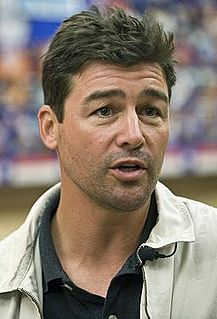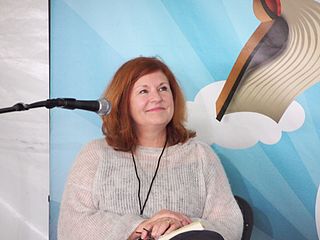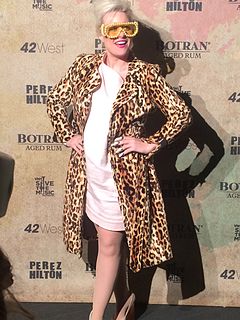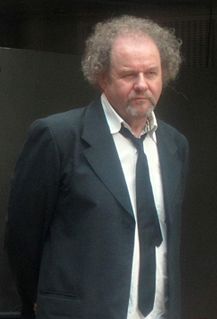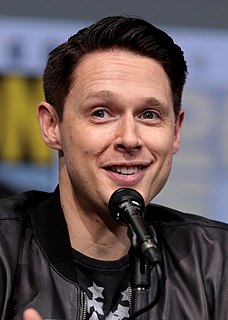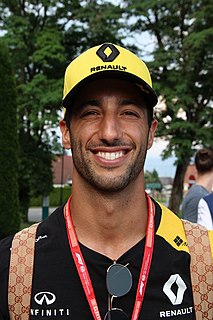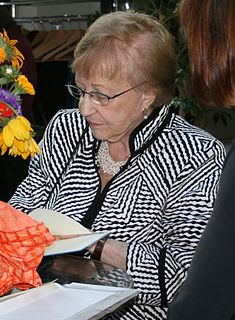A Quote by Salma Hayek
So you have to keep waiting and then they give you the script and it's terrible. Then you have to go to the rewrite and they're very upset because you didn't like it. I went through that for seven years.
Related Quotes
I tend to write things seven times before I show them to my editor. I write them seven times, then I take them on tour, read them like a dozen times on tour, then go back to the room and rewrite, read and rewrite... I would never show him a first draft, because then he's really going to be sick of it by the twelfth draft.
All directors make films in individual ways. But the classical kind of view of filmmaking is that you have a script, and it's very linear. There's a script, then you're going to shoot the script ,and then you cut that, and then that's the end of the film. And that's never really been how I've seen it.
Lego was our fourth film, because we did two Cloudys, so yeah there's a little bit of shorthand that's involved and then you can anticipate things- because for me it's like, I get a script for a movie and I go, "Wow that's a pretty good script", then you sign on and a couple months later they show you the first cut and you're like, "Whoa, how did that happen?"
Usually I will hear a sample, think of a theme and then it will take me a couple of days to write down some lyrics. Then I will decide that I hate those lyrics and rewrite. Then I will change all the music around. Then I will rewrite all the lyrics again. I am a bit of a perfectionist although you would never know it because all my songs are like chopped up and @#$%& up, but you see that's on purpose.
Finally, I was called for "The Office" and I was really lucky, because a lot of the shows that I went out for I would work my way up from, like, an audition with the casting director to the director to the producers to the studio, I'd go through seven auditions, and then they'd give the role to a famous actress.
I'm a Brit and I just put myself on tape, back in London, for a very distant American project that I thought I didn't stand a chance of getting. And then, I got a call about a week after I had submitted my tape, just saying, "They really like you and want to screen test you." So, I flew to L.A. and did the screen test. And then, I met Elijah [Wood] and did a screen test with him. And then, I had a very nerve-wracking few days back home, waiting and waiting and thinking, "This cannot possibly go my way because that would just be too good to be true." And then, it did.
I used to go to work with Dad on the weekend. We'd drive past an indoor go-kart track every now and then, and we went there a few times. I was never tall enough, so I always left upset. I think I was seven when I was the right height, and I was like, 'Please let me have a go.' It was love at first sight.
I went to work at seven in the morning. Around noon time we got the watery soup. And we worked until seven or eight or nine at night, sometimes later. And then I walked back home - there was no public transportation - into that shared room. And if there was food we would prepare an evening meal depending on what was available. And then probably go to bed because it was cold most the time. And then start the day all over again, six or seven days a week.
That's where the inspiration was and so the more that you rewrite and the more you rewrite and the more the numbnuts are coming in to give you notes then the more problems you run into and the more it suddenly doesn't seem like the movie, the story, the characters changed, watered down and we don't have that with this.
One thing was very clear and I made it always very clear at the beginning when I got into the governorship, and that was that I wasn't trying to become a career politician. This was not like I was going to be governor for seven years and then I was going to run for the Senate and then for Congress. That was never my interest.



